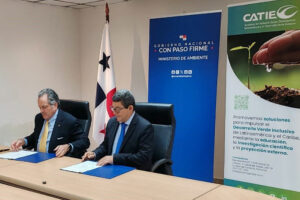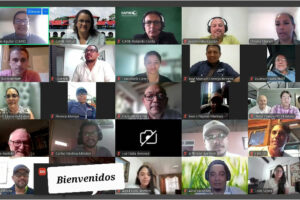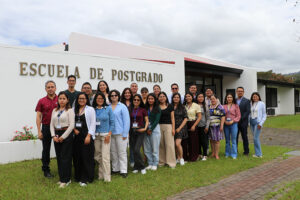Weaving Resilience and Climate Governance in Latin America
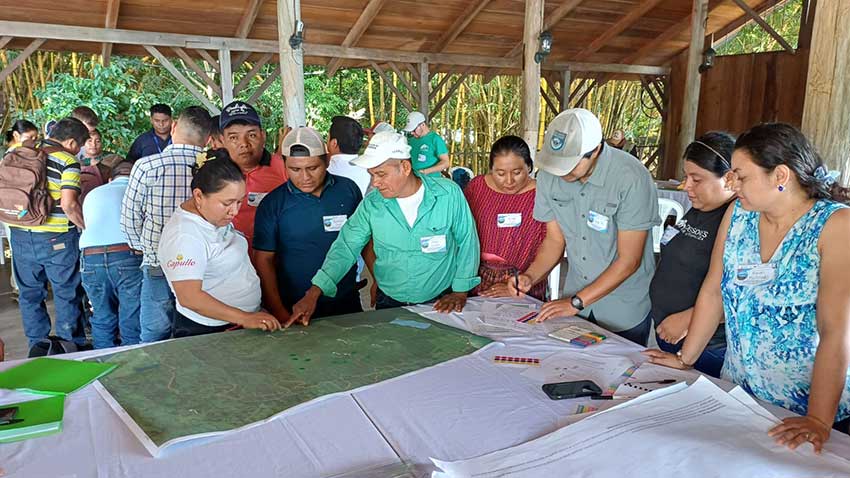
- The PARES Project concludes its first phase with 12 field workshops
Between April and July 2025, the Peace, Action, Resilience and Sustainability in Latin American Landscapes Project (PARES) carried out a series of 12 participatory workshops in an equal number of rural landscapes across six Latin American countries, with the aim of identifying socio-ecological vulnerabilities and promoting sustainable solutions through a peace, security, and climate change lens.
These workshops were led by local organizations that received project grants: ECO, Fundación Defensores de la Naturaleza, and ASOVERDE (Guatemala); FENAPROCACAHO, Fundación PUCA, and CODDEFFAGOLF (Honduras); ADEL La Unión (El Salvador); CECROPIA A.C. and FONCET (Mexico); Corporación Biocomercio Sostenible (Colombia); and Corporación Toisán and Terra Viva (Ecuador), with methodological and technical support from CATIE (Tropical Agricultural Research and Higher Education Center).
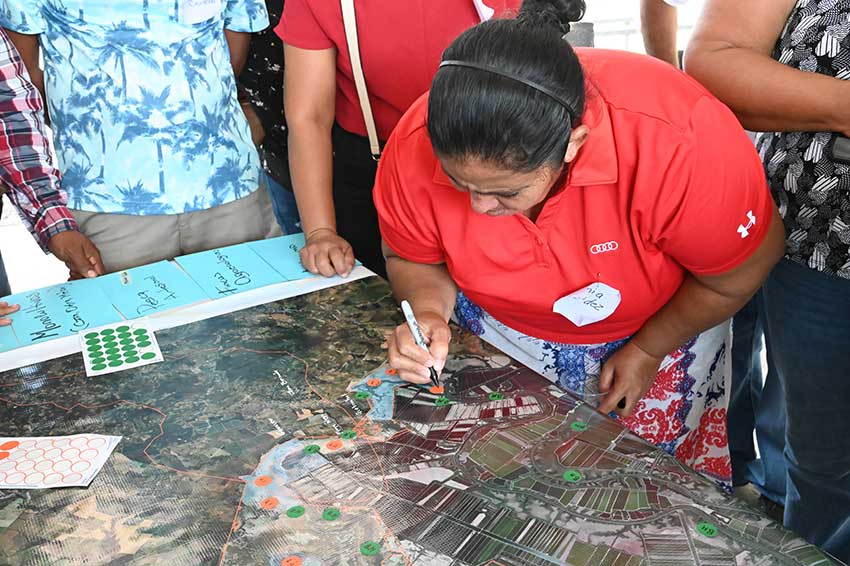
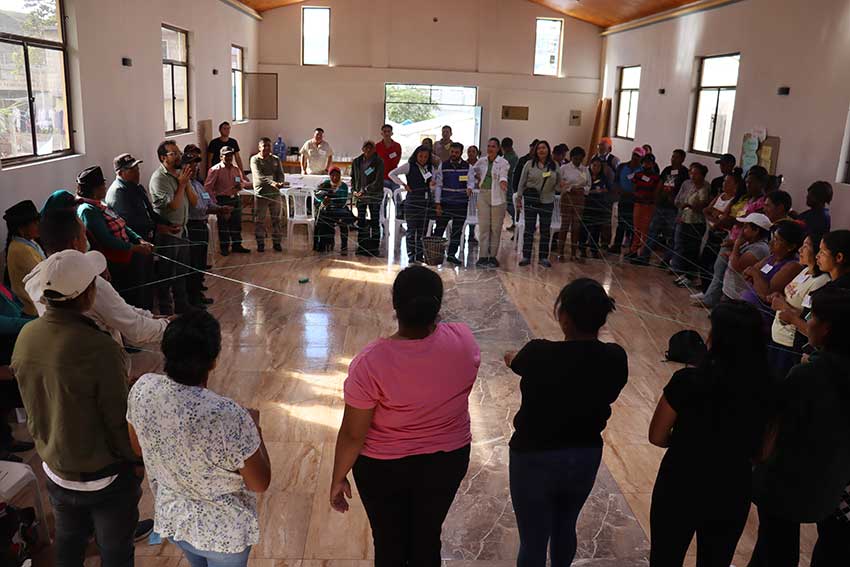
The meetings made it possible to analyze the fragility and vulnerability of socio-ecological systems in territories affected by climate change, biodiversity loss, and social pressures such as migration or unequal access to ecosystem services, from a perspective that interconnects peace, security, and climate change.
Throughout this process, more than 300 people actively participated, including community actors, local authorities, representatives of Indigenous and Afro-descendant peoples, youth, women leaders, producers, and grassroots organizations. In addition, more than 50 facilitators from the implementing organizations facilitated the spaces using methodologies adapted to the territorial contexts.
The goal of the workshops was to generate, from a local and participatory perspective, a comprehensive diagnosis that will serve as the basis for identifying and prioritizing a portfolio of Nature-based Solutions (NbS), which will contribute to maintaining the provision and access to ecosystem services and strengthening governance.
“This process has been a true collective effort. Technical teams and local actors have developed an integrated vision of the landscape, identifying threats, impacts, and opportunities to improve governance and security. This will allow us to turn the participatory diagnosis into Nature-based Solutions, strengthened by local knowledge and practical tools to move toward more resilient territories,” said Andrea Zamora, researcher at CATIE’s Climate Action Unit.
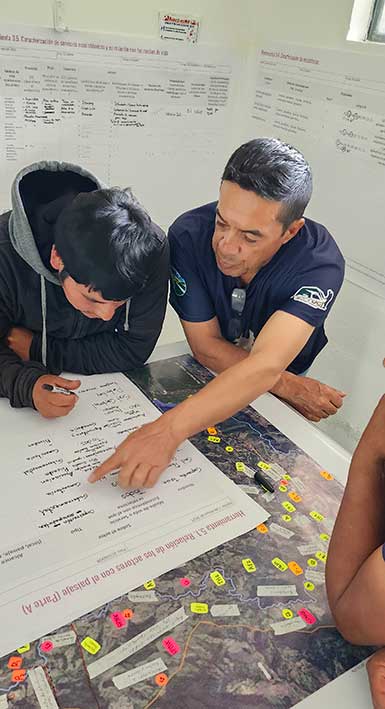
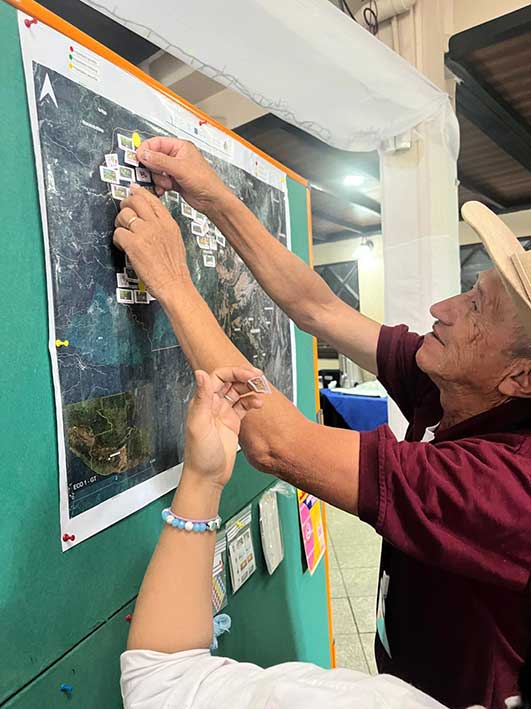
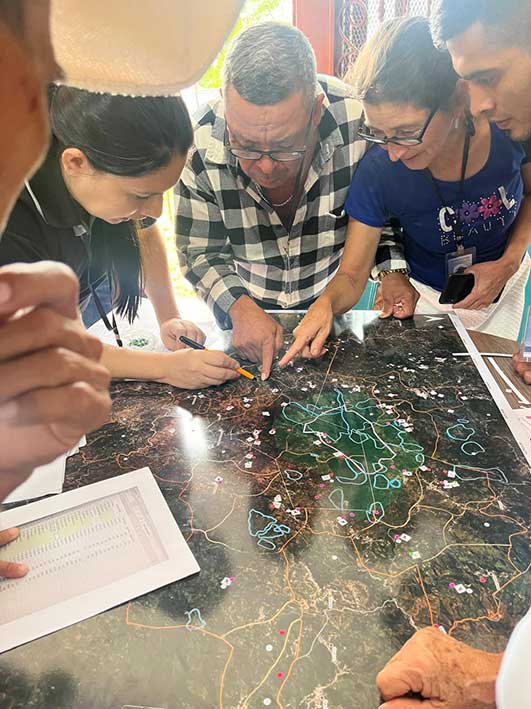
Horacio Estrada, Executive Director of ASOVERDE, added: “This process confirms that climate change adaptation is only possible when built from the voices of the territory. The participation of communities, productive sectors, and institutions shows that shared governance and more resilient landscapes are achievable. It was key to hear producers, especially those in coffee and horticulture, recognize their dependence on healthy ecosystems.”
This workshop cycle marks the end of the first phase of the PARES Project and lays the groundwork for the co-creation of territorial strategies for resilience, ecological restoration, and peace in highly vulnerable contexts.
The PARES Project is implemented in Latin America under the framework of the European Union (EU) and United Nations Environment Programme (UNEP) Partnership "Enabling specific approaches to address climate and environmental risks in the context of peace and security," with technical support from CATIE.
More information:
Ileana Ávalos Rodríguez
PARES Project Coordinator
Climate Action Unit
CATIE
ileana.avalos@catie.ac.cr
Written by:
Karla Salazar Leiva
Communicator
Communications and Marketing Office
CATIE
karla.salazar@catie.ac.cr

